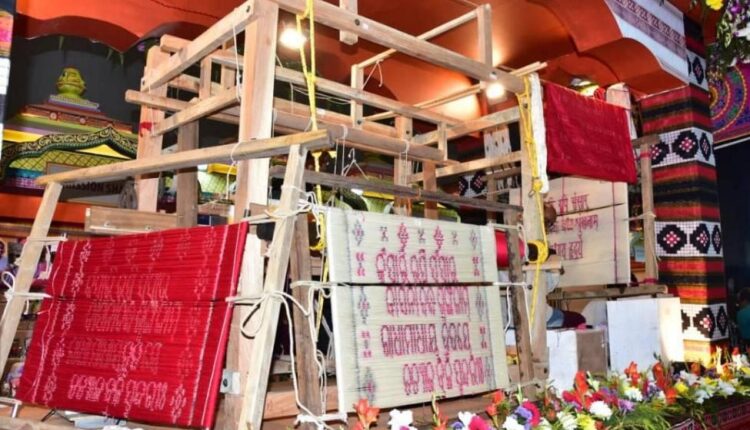Odisha adopts new technique to make silk without killing silkworms
The official explained that the new silk is called 'Karuna Silk' because the process involves compassion rather than the death of silkworms.
Odisha has adopted a new technique for producing traditional “Patta” sarees that extracts silk without harming silkworms, according to a top official in the handloom department.
The official explained that the new silk is called ‘Karuna Silk’ because the process involves compassion rather than the death of silkworms.
Trade reports state that 10–20,000 silkworms must be killed in order to manufacture a single mulberry silk saree.Similar to this, 5-7 thousand silkworms perish in the traditional method of creating a tasar silk saree.
Director of the Department of Handlooms, Textiles, and Handicrafts Shovan Krishna Sahu stated, “Our Chief Minister Naveen Patnaik consistently advocates for nonviolence and wants that all production processes adhere to the same standards. Therefore, by deviating from the conventional practice of “Filament Silk,” which kills the silkworms, we hoped to foster compassion. We gave up on the moth honoring its life cycle in the new procedure.
“The fiber is ruptured when the moth leaves the cocoon. The “worsted spinning process” produces silk fiber that is ready for weaving and coloring. The business is appreciating Odisha’s adoption of this humanitarian process,” says Sahu.
The director asserted that by combining compassion and tradition in “Karuna Silk,” Odisha is breaking new ground in sustainable design.
At the India International Trade Fair (IITF) at Pragati Maidan in New Delhi, tourists have been taking notice of Odisha’s new attempt to save silkworms, according to Sahu.
The state government is guiding the talented weavers from Routpada in the Khurda district as they showcase their artistic abilities live at IITF. The artists are currently weaving the same rare “Karuna Silk” that has been used for generations to create the holy “Khandua Patta” for Lord Jagannath.
“Karuna Silk, a new project from Odisha, is cruelty-free, and this year it’s the USP at Odisha Pavilion. Our innovative story is piqueing the curiosity of visitors, according to Sanjay Kumar Singh, Principal Secretary, Information & Public Relations Department.
Three varieties of silk are grown in Odisha: mulberry, tasar, and eri. Under the brand name “Karuna Silk,” these Eri silkworms are raised using a novel and humane technique.
‘Karuna Silk’ was introduced as a pilot plan involving approximately 700 sericulture farmers under the Odisha government’s 5T (teamwork, technology, transparency, timely completion leading to transformation) initiative. The program has been extended by the department to 14 areas this year, involving 2,500 silk farmers. On castor plants, the Eri silkworm is raised, according to Sahu.

